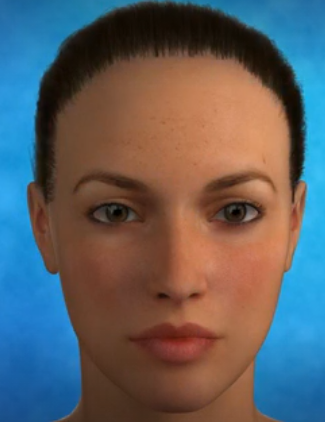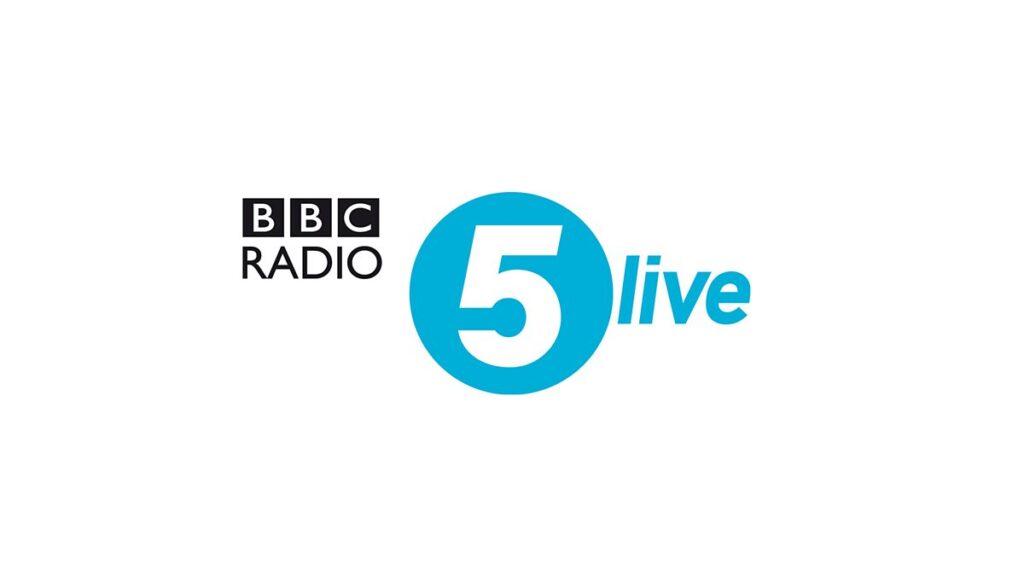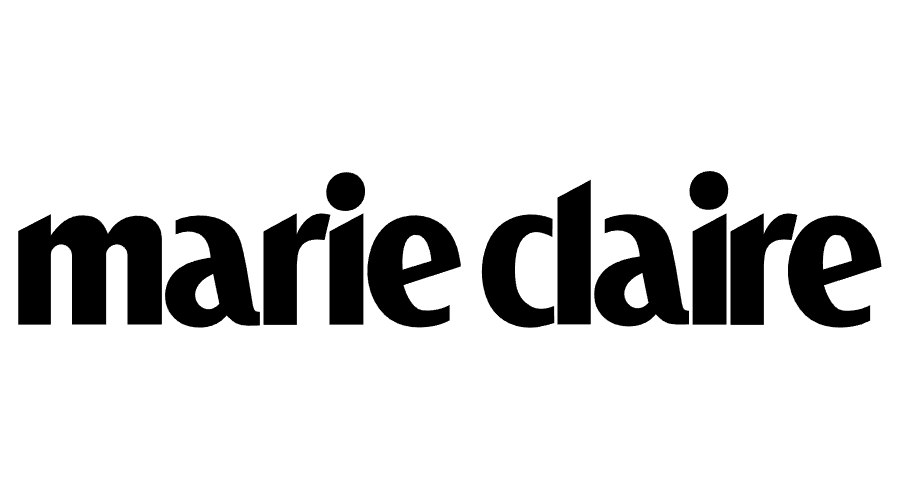What Is A Face Lift?
A face lift is an operation designed to rejuvenate the face and to give a more youthful appearance. The face and neck can droop with age as the skin loses its elasticity and the face appears to lose volume. A face lift aims to reposition and enhance the volume of the face and tighten the overlying skin. Gary Ross is one of the most experienced and qualified face lift surgeons in Manchester.
Modern techniques focus on the repositioning and volume enhancement rather than the removal of excess skin. It can also be combined with other surgical procedures such as neck lift, blepharoplasty, autologous fat transfer and brow lift or with non-surgical procedures such as lasers, peels, and dermabrasion. Following a face lift consultation in Manchester with Gary Ross, the best procedure combination for you can be discussed.
Who Is It Suitable For?
Our faces age for a variety of reasons and ages at varying times for different patients. It is commonest to perform face lift procedures between the ages of 40-70 although there is no age limit.
Who Is Not Suitable For Face Lift Surgery?
Those who have been pressured to contour their body by others are not suitable for face lift surgery in Manchester. Other signs you may not be a good candidate are if you have unrealistic expectations, smoke and you have a significant medical history.
How Much Does A Face Lift in Manchester Cost?
The cost of a face lift can differ on a case by case basis. Once you’ve had the initial consultation for your face lift in Manchester, the surgeon will provide you with a full quote.
What To Expect During Your Face Lift Consultation in Manchester
The success of the face lift consultation in Manchester depends on your openness and honesty in relation to what troubles you and your expectations of surgery. You will be asked questions about your health, desires and lifestyle. Different operations can be tailored to your needs and the potential outcomes and the risks and complications will be discussed with you. The face lift requires repositioning of the tissues in your face and often skin is also tightened and removed.
Various types of face lift procedures are available with Gary Ross in Manchester and may be combined with other forms of facial rejuvenation. It may involve lifting all of the skin of the face and neck, repositioning of the tissues and tightening of the skin. Other facial rejuvenation procedures may be performed at the same time. Surgical options include neck lift, blepharoplasty, autologous fat transfer and brow lift and non-surgical options including lasers, peels and dermabrasion.
A consultation regarding the risks and limitations of face lift surgery in Manchester will help you to choose a procedure that will meet your expectations.
Preparing For Face Lift Surgery in Manchester
The majority of face lift procedures require general anaesthetic. Your health is of prime importance and any cosmetic surgery should be postponed if you are unwell for any reason. It is important that if anything changes with your health that you make contact with your face lift surgeon in Manchester.
You should ideally stop smoking 6 weeks prior to surgery and stop taking aspirin, anti-inflammatory drugs and herbal supplements before surgery. You may need preoperative tests prior to having your face lift in Manchester, which we will arrange if required. You will generally experience discomfort following the surgery and should aim to be off work for at least 2 weeks depending on the type of work you do.
The Face Lift Surgery
When you have your face lift in Manchester, it often takes between 2 and 3 hours, although this may be longer if you are having additional procedures. Usually an incision is made in the hairline and extends in a natural line in front of the ear (men) or just inside the cartilage at the front of the ear (women) and continues under and then behind the earlobe into the scalp. Shorter scars may be used depending on what you are trying to achieve with the face lift and occasionally it may be necessary to make an incision under the chin.
During your face lift in Manchester, the skin is generally separated from the underlying tissues and the tissues of the face and neck are visualised directly. The underlying fat and muscle are visualised and the tissue repositioned. The tissue in the face is repositioned vertically.
Occasionally, excess fat may need to be removed via liposuction and fat may be injected into other areas. The muscles in the neck are tightened and the skin is redraped and repositioned. Skin may need to be removed during the face lift and the skin is then resutured in layers. Within the scalp area a number of surgical clips are used. It is unusual to require drains or dressings with face lift surgery in Manchester.
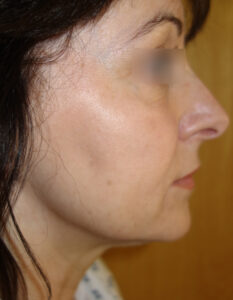

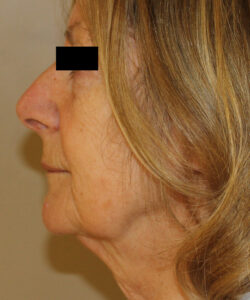
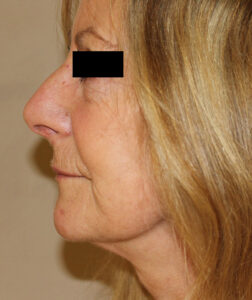
After Face Lift Surgery in Manchester
You will usually return to the ward within an hour following face lift surgery in Manchester. You will be able to eat, drink and mobilise. You will feel swollen and have bruising and discomfort that may require analgesia. You will be numb around the face, neck, ears and this does take some weeks/months for the sensation to return, although it is unusual to have permanent sensory loss. You will feel that your face and neck in particular will feel tight following your face lift surgery in Manchester and this is entirely normal. The bruising and swelling does take some days/weeks to settle and you should keep your head upright.
You should arrange for someone to pick you up following your face lift in Manchester and have some support at home on discharge. The final results of a face lift can take a number of months to become apparent. You will be seen in the dressings clinic by your face lift surgeon in Manchester the following week and it is important to avoid too much contact with your face and hair during this time. It will take a couple of weeks to get back to your normal activities. The scars from a face lift can be red initially but usually fade over time and usually fade to become a white line. The post op picture of a lady undergoing a face lift at one week, at 6 weeks and 5 years is included to show the post op swelling and bruising that one would expect to see throughout the healing process.
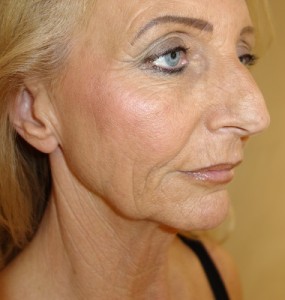
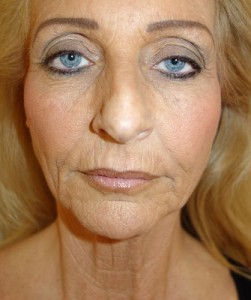
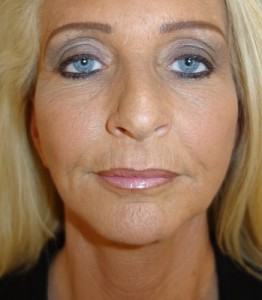
Risks And Complications of Face Lift Surgery
The vast majority of face lift patients in Manchester are delighted with the procedure, although common complaints include numbness, bruising, swelling especially around the ear and scar line. Uncommon complications include infection, haematoma, delayed healing/skin necrosis/skin loss, seroma formation and thickened scar. Abnormal scars are rare with face lift surgery although there may be a difference in the scars between the two sides.
Irregularities within the face and neck can occur although these usually settle within a number of weeks. Nerve damage to the facial nerve that controls the muscles of facial expression can be damaged. Although temporary weakness lasting days/weeks can occur after a face lift, it is rare for there to be any permanent loss of function. There are also uncommon risks of general anesthesia such as respiratory/cardiac compromise and deep vein thrombosis. Any concerns post face lift surgery should immediately be discussed with your surgeon in Manchester.
Why Choose Gary Ross MBChB, MD, FRCS, (Plast) For Your Face Lift in Manchester
Gary Ross is a full member of the British Association of Plastic, Reconstructive and Aesthetic Surgeons (BAPRAS); British Association of Aesthetic Plastic Surgeons (BAAPS), American Society of Plastic Surgeons (ASPS), Association of Breast Surgeons (ABS), British Association of Head and Neck Oncologists (BAHNO) and is a fully accredited plastic surgeon on the General Medical Council’s specialist register for plastic surgery. Gary Ross is a highly experienced Face Lift surgeon in Manchester, so you will be in the safest environment possible for your procedure.
A face lift surgery helps to rejuvenate the face by enhancing the volume of the face and tightening the skin, therefore making the patient look more youthful. In the past, face lift surgery was focused on the removal of excess skin, but modern techniques include a greater focus on repositioning and volume enhancement for the most effective results.
Depending on the wants and needs of the patient, face lift surgery can be combined with other procedures including neck lift, autologous fat transfer or a brow lift. It is also common for non-surgical procedures to be combined with the face lift surgery, including lasers and peels. Your suitability for having a face lift in Manchester will be discussed during a consultation.
Prior to your surgery, you will have a full consultation with your face lift surgeon in Manchester to make sure that you are absolutely happy with the plans for the surgery. The face lift itself takes between 2 and 3 hours and in some cases, this is slightly longer if the surgery is being combined with other procedures.
For most face lifts, an incision is made in the hair line and is extended down towards the ear and behind the earlobe. The length of the scar varies significantly depending on the expectations for the surgery. Following the incision, the skin is separated from the tissues under the skin and then the face can be repositioned and tightened. Surgical clips are used within the scalp area.
Full recovery after your face lift surgery in Manchester will take around 6 weeks. As soon as possible after the surgery, you will be encouraged to eat, drink and mobilise. It is normal to experience numbness, tightness, swelling and discomfort, particularly the days following the surgery. The numbness is likely to last weeks or potentially months.
A week after your face lift surgery in Manchester, you will come back to see your surgeon to have your dressings changed. Before this time, avoid contact with your face and hair. The scars will be almost fully healed 6 weeks post surgery.
How long a face lift lasts depends on various different factors, such as your lifestyle and how you age naturally. In general, you can expect the results of a face lift to last around 10 years.
Although there is no age limit for having face lift surgery, it is most common for people to have a face lift between the ages of 40 and 70. During a consultation with your face lift surgeon in Manchester, they will be able to discuss your suitability for the procedure and you will be informed of all of the benefits, drawbacks, risks and potential complications. This will help you to make an informed decision about whether face lift surgery is right for you.
